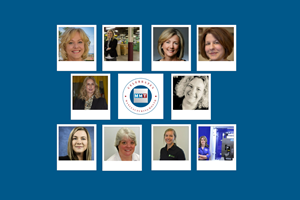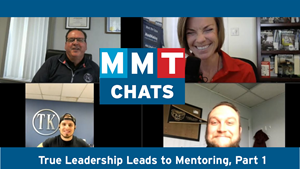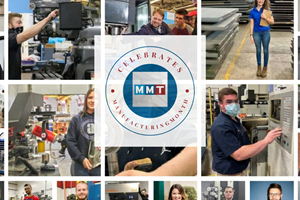Related Technical Instruction Options
Finding, Training & Retaining Employees, Part 6
After exploring the broad elements of apprenticeship training in previous articles, we will take the next couple of articles to look closer at some of the Related Technical Instruction (RTI) options that you should consider when building your apprenticeship program. Remember, as the employer, you have a great deal of flexibility as to the topics that you put into your program and how the topics are delivered. Below is a brief summary of some common topics you may want to cover, as well as a short justification as to why you may want to cover them.
Shop Safety: A formal class on advanced safety tips and rules for working on the shop floor is a critical component to building a safety conscious workforce.
Shop Math: Many shop owners and managers have argued that we no longer need shop math in an apprenticeship program because “everything is done by computers now”. I agree that the level of actual math done on the floor has dramatically reduced; however, I believe shop math is important to keep in the program because of the problem-solving logic it teaches us. Perhaps we do not need as much, but I believe it still needs to be there.
Precision Measurement: Having some type of class that teaches our apprentices that there is more to precision measurement tooling and layout than just calipers, micrometers and height gages is critical. In a good precision measurement course, the apprentice will learn about everything from proper care of a broad range of measuring tools to compounding tolerances and more.
Print Reading: Why print reading? Everything is done in CAD, right? Right! Yet, in my experience of training literally hundreds of people in this trade, it has become glaringly obvious that people that have taken a basic print reading course have better visualization, sketching and overall CAD skills. CAD systems were developed with traditional prints as their basis. Sometimes it can be very helpful to understand where we are if we know where we have been.
Continuous Improvement: Every apprentice should have at least an overview of the variety of tools, processes and lingo we use every day to improve our companies and stay competitive. The class or classes should cover everything from Quality Systems (ISO, etc.) to Lean Manufacturing terms and tools, to problem-solving tools, such as “5-Why”. These concepts are an unavoidable reality of modern manufacturing at every level. We need to be giving apprentices sufficient exposure to how and why they are used. If we do not, they will stand in the way of improvement initiatives.
In the next article, we will continue our recommendations for Related Technical Instruction. There are many more classes that could prove to be valuable as part of an apprenticeship. Again, these are just suggestions. You are free to design an RTI plan that will fit the needs of your company. It is important to note; however, that the American Mold Builders Association (AMBA) is working on creating an industry standard test to validate the knowledge of people completing an apprenticeship. This also could prove to be a valuable tool available to us in the near future for setting up your RTI.
Related Content
Women Impacting Moldmaking
Honoring female makers, innovators and leaders who are influencing our industry's future.
Read MoreICYMI: MMT Chats: True Leadership Leads to Mentoring, Part 1
This trio from TK Mold and Engineering in Romeo, Michigan, joins me to discuss the role of leadership and culture in mentorship. This episode is brought to you by ISCAR with New Ideas for Machining Intelligently.
Read MoreTackling a Mold Designer Shortage
Survey findings reveal a shortage of skilled mold designers and engineers in the moldmaking community, calling for intervention through educational programs and exploration of training alternatives while seeking input from those who have addressed the issue successfully.
Read More2021 30 Under 30 Honors Program: Mentoring in the Next-Generation of Moldmaking Professionals
Young professionals are vital to the moldmaking industry, and it is important to acknowledge those making strides in shaping the industry's future. MoldMaking Technology recognizes the industry's young talent through its 30 Under 30 Honors Program.
Read MoreRead Next
Apprenticeship Training
Finding, Training & Retaining Employees, Part 4
Read MoreFinding, Training & Retaining Employees
In this multi-part series of articles, contributor Ryan Pohl, a journeyman CNC machinist who also holds a master's degree in industrial training and development, addresses the skilled-labor shortage and its potential to dramatically hinder the future sustainability and growth of the moldmaking industry.
Read More






.jpg;maxWidth=300;quality=90)
.png;maxWidth=300;quality=90)












